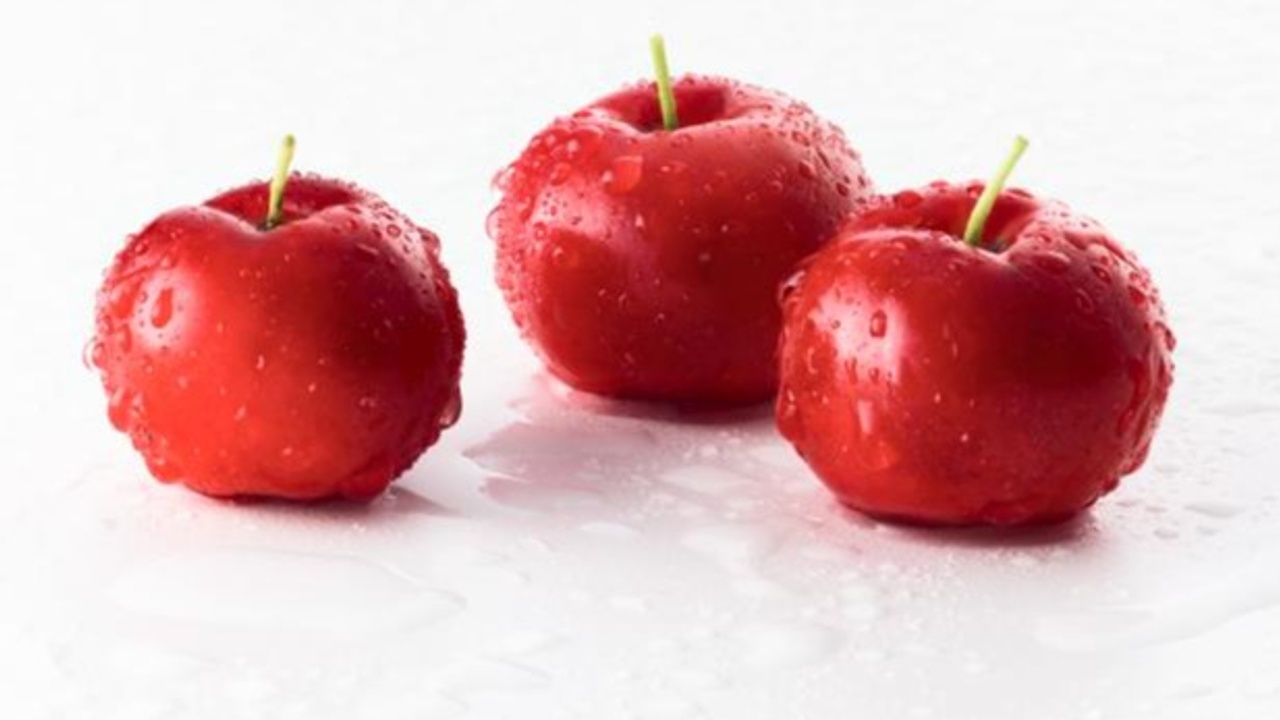Did you know there is a whole range of plant-based foods with up to 50 times more vitamin C than those typical fruits and veggies renowned for their vitamin C content (i.e. oranges, kiwis, strawberries)?
There is a myriad of Vitamin C supplements on the market, however, these are typically made from synthetic ascorbic acid and are usually formulated in a lab. I am a big believer in getting your vitamins and minerals from their natural source, which is why I love the below list of plant-based foods bursting with natural vitamin C.
Vitamin C has always been well recognised for its immunity-boosting properties and remains the vitamin of choice for fighting off the common cold and infection. Recent studies have shown, however, that this powerful vitamin is responsible for a range of other health benefits - from preventing cataracts to reducing blood pressure. Vitamin C is a very effective antioxidant and helps to fight free radicals both internally and externally. When applied topically to the skin it can help prevent early aging and skin damage. Vitamin C is a collagen builder so it is excellent for repairing wounds and supporting skin suppleness.
Feeling like you need an immunity booster or a good dose of antioxidant?
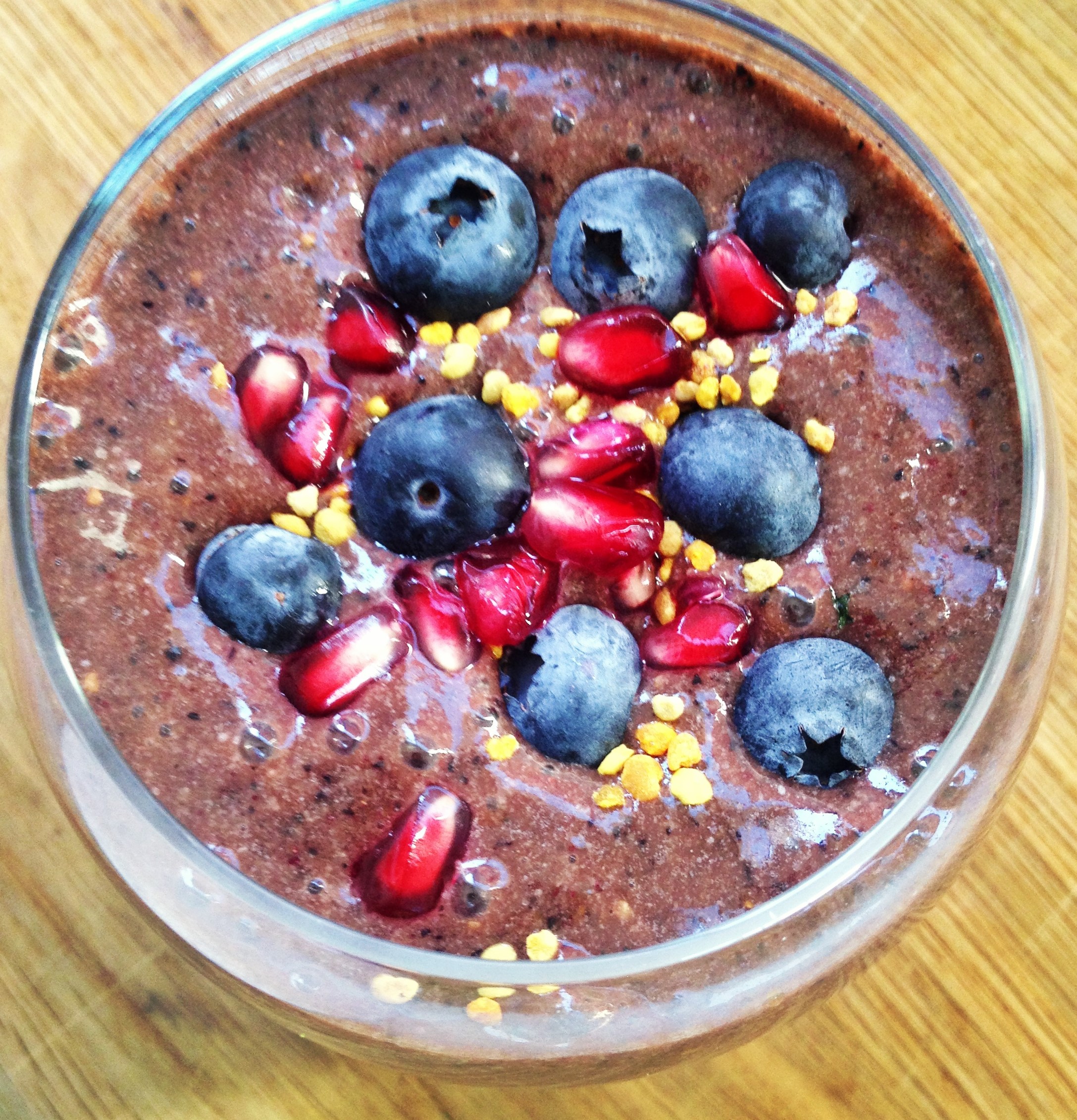
Top Plant Based Sources of Vitamin C
Kakadu Plum (Gubinge)
Kakadu Plum or Gubinge is the highest natural source of Vitamin C on the planet with 1300 mg per 100g - over 50 times the concentration found in oranges. The Kakadu Plum is an indigenous Australian superfood and comes from Kakadu and the Kimberlys. For thousands of years the Indigenous people of Northern Australia have used this powerful plan for medicinal purposes. The Kakadu plum is well know for it’s antibacterial, antiviral as well as anti-infammatory properties.
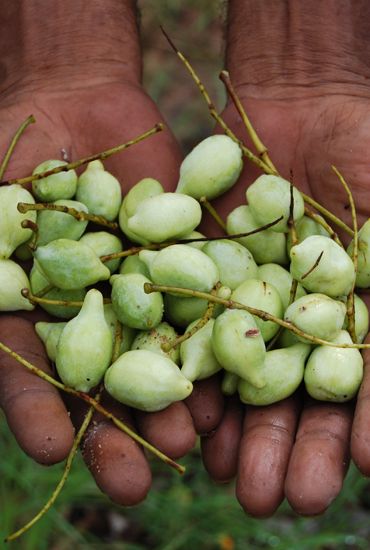
Loving Earth provide harvest Gubinge Powder and 100% of their profits go back to the Nyul Nyul people of the Kimberly. You can purchase this powerful source of vitamin C .
The lovely Vanessa Megan, who prides herself on the motto "You should never put anything on your skin that you wouldn't eat” makes an oil free Kakadu Plum Anti-aging serum, which is well worth trying. Full of vitamin C it is a wonderful antioxidant for the skin.
Camu Camu Powder
Containing the second highest natural source of Vitamin C of all foods, Camu Camu is another little gem from the Amazonian rainforest of Peru and Brazil. Camu Camu fruit grows on a bushy tree in backwater rivers. It is said that people of the rainforest have harvested the juice and used it boost immunity, particularly in times of stress and anxiety. Camu Camu has been used by ancient cultures to help promote healthy gums, eyes, and skin and also support the functions of the brain (nervous system) and heart (circulatory system).
Again Loving Earth has an excellent Camu Camu product. This powdered form can be added to juices or smoothies is a great way to boost your vitamin C intake.
Rose Hip
Rose Hip is another fruit that is very rich in Vitamin C – 200mg/100g (far outweighing vitamin C in fruits like oranges, kiwifruit or strawberries). Rose hip are the fruit of the rose plant. During World War II, British were told to gather Rose Hips to make vitamin C for their children when supplies were short.
Rose Hips also contain Licopene, an important antioxidant for the body. Recent studies have shown Rose Hips can be a beneficial for rheumatoid arthritis due to it’s anti-inflammatory and anit-oxidant effects – read more here
Note: Vitamin C is not present in Rose Hip oil as it is a water soluble vitamin.
Love Chai do a naturopathic blend of White Rose and Goji Tea and an Immunity Tea – both containing Rose Hip.
Acerola Berry
Another very rich source of natural vitamin C, the Acerola Berry originates from Central and South America and looks very similar to the red cherry. The vitamin C produced by the Acerola fruit is better absorbed by humans than synthetic ascorbic acid. In addition to vitamin C the berry contains vitamins A, B1, B2, and B3, as well as bioflavoids and carotenoids, which provide important nutritional value and antioxidant benefit
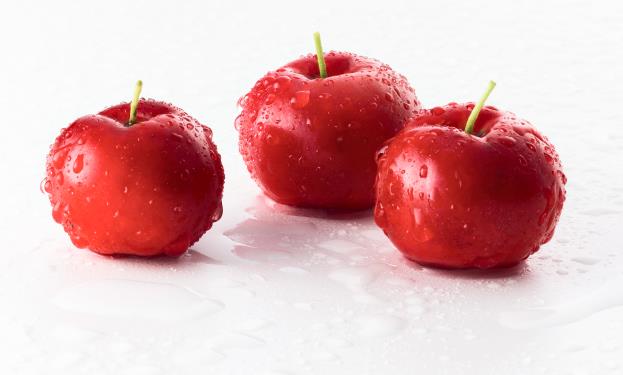
Lifestream make an organic Acerola Berry Vitamin C and claim that most vitamin C supplements available today are artificially produced from corn glucose, via chemical and/or fermentation processes. Their vitamin C does not contain any synthetic ascorbic acid or anything artificial. Click here for more information.
Black Currant
Black Currants are rich in micronutrients and have 3 – 5 times as much vitamin C as oranges do. They contain anthocyanins (also present in black rice and mentioned in our blog), which is the dark blue/black pigment in the skin and are powerful antioxidants. Black currents are said to be anti-inflammatory, promote cardiovascular health and age-related eye problems.
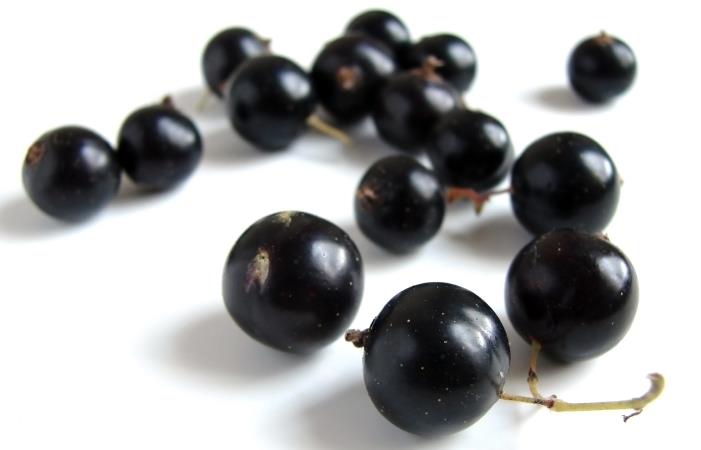
Table from News Medical
| Plant source | Amount (mg / 100g) |
| Kakadu plum | 3100 |
| Camu Camu | 2800 |
| Rose hip | 2000 |
| Acerola | 1600 |
| Seabuckthorn | 695 |
| Jujube | 500 |
| Indian gooseberry | 445 |
| Baobab | 400 |
| Blackcurrant | 200 |
| Red pepper | 190 |
| Parsley | 130 |
| Guava | 100 |
| Kiwifruit | 90 |
| Broccoli | 90 |
| Loganberry | 80 |
| Redcurrant | 80 |
| Brussels sprouts | 80 |
| Wolfberry (Goji) | 73 † |
| Lychee | 70 |
| Cloudberry | 60 |
| Elderberry | 60 |
| Persimmon | 60 |
| Papaya | 60 |
| Strawberry | 60 |
| Orange | 50 |
| Lemon | 40 |
| Melon, cantaloupe | 40 |
| Pineapple | 10 |
| Pawpaw | 10 |
| Bilberry | 1 |
| Horned melon | 0.5 |
| Medlar | 0.3 |

